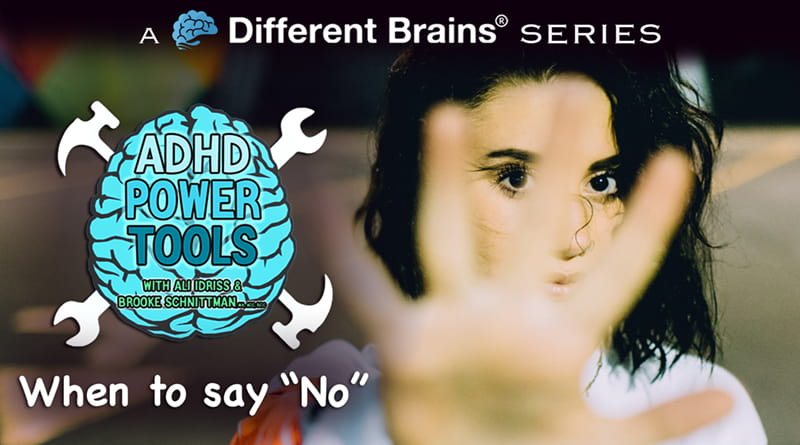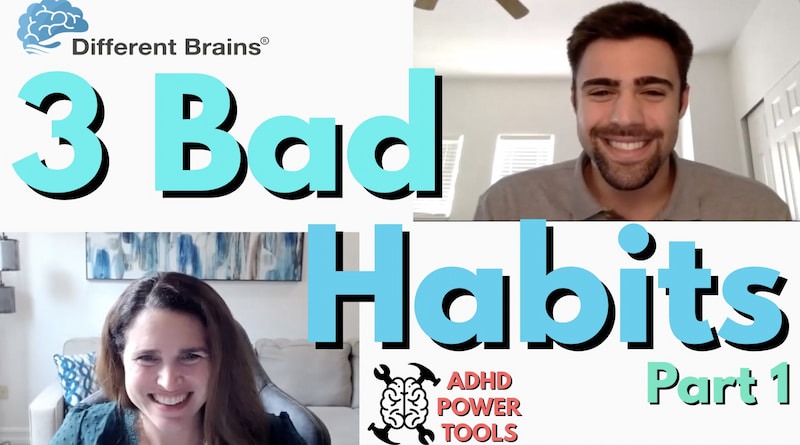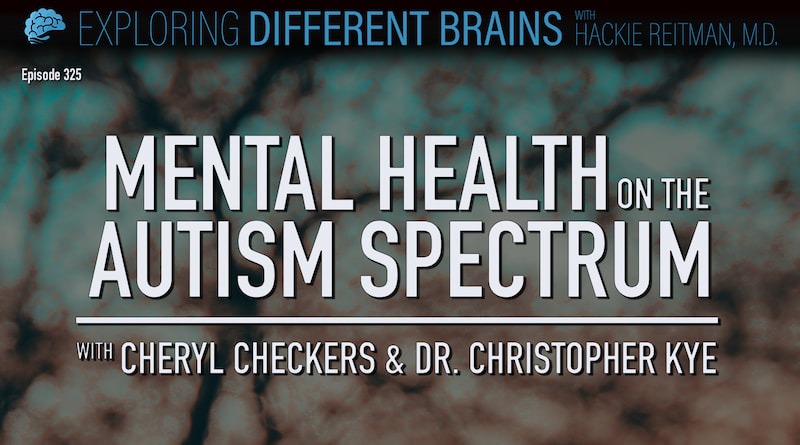The Autism Theater Project: Creating Inclusion on the Stage & Screen | EDB 303

Members of the Autism Theater Project share how they are working to change the perception of neurodiversity through performing.
The Autism Theater Project is a a non-profit organization dedicated to empowering the autism community. We express the voice of the autism community through theatrical experiences, and empower special needs children to express their own voices through our drama therapy workshops. Their latest production is a web series titles “The Voice Inside”. Featured in this episode are: Gena Sims (founder of the Autism Theater Projects, producer, director, writer, performer, and autism advocate), Matteo Esposito (autism self-advocate, playwright, and co-writer of “The Voice Inside”), Kaylah Taylor (autism self-advocate, performer, teacher, and actress in “The Voice Inside”), and Zack Hoaglund (autism self-advocate, performer, filmmaker, and actor in “The Voice Inside”).
For more about The Autism Theater Project:
www.facebook.com/AutismTheatreProject
AUDIO PODCAST VERSION:
Or look for us on your favorite podcast provider:
iTunes | Stitcher | SoundCloud
FULL TRANSCRIPTION
Note: the following transcription was automatically generated. Some imperfections may exist.
DR HACKIE REITMAN (HR): Hi, I’m Dr. Hackie Reitman, and welcome to another episode of Exploring Different Brains. Today, we’re very excited to welcome part of the crew from the Autism Theater Project. I’m going to have all of you give a brief introduction of yourself. And I’ll start with the Autism Theater Project founder, Gina Simms.
GENA SIMS (GS): Hi, everyone. Hi, I’m Gina. Yes, I’m very proud to have founded the Autism Theater Project, and be working with several very passionate and talented autistic actors and writers, as well as people who are not on the spectrum who are equally passionate about telling stories that really show the potential strength and resilience of the autism community. And these are just a few of the people that I’ve been working with. And they’re there. They’ve been doing wonderful, wonderful work. Our main production as of now is called the voice inside. And it is going to be an ongoing series that basically puts together different stories from people on the spectrum as well as those off a spectrum and integrates them into this series where we hear from different people’s perspectives. Yes, yeah. And I’m also I’m also a performer, and I write direct and produce our productions.
HR: Write, produce, direct, act. You do it all. Kaylah you’re up.
KAYLAH TAYLOR (KT): Hello, my name is Kaylah, and I am a musician, singer, pianist. And I produce music, and I am an actress in the voice inside. I also am a educator for the past five years as well. And I love music. And I’m happy to be here.
HR: Great. Matteo, would you like to introduce yourself briefly?
MATTEO ESPOSITO (ME): Yes I would doctor. Um, hello, my name is Matteo. I’m a playwright and set designer — a non union set designer and artist and artists advocate on the spectrum. My plays talk about stuff that we don’t normally talk about at the dinner table like ignorance and compassion, inclusive employment, believing yourself, working hard and never giving up. Which are the three morals I think everybody should follow. And, you know, I think a lot of people don’t. But I’m just thrilled to be here, great to be on this podcast. And so to be with all of you, including Gena, thank you.
HR: Thank you very much. Zack, do you want to give a brief introduction?
ZACHARY HOAGLUND (ZH): Hi, my name is Zachary Hoaglund. And I am a video editor, actor, and I work with Different Brains. I’m the host for the Week in Neurodiversity. And I’m I also am a worker with the the autism theatre project. I, I’ve had a great time with the Gena and in Kayla, um, I’ve had a good, good time. We’re working with them.
HR: Gena, tell us what the Autism Theater Project is and how it got started.
GS: The Autism Theater Project is essentially both a production company and an educational organization. So I was inspired by my sister and also an a young actress I met at this event called National Young arts week when I was in high school. So that was in 2014. I met this young actress who works with autistic actors on productions. And you told me about how open they were and and how honest they were in their performances. And what a cool experience it was. And I was thinking, you know, I’ve always wanted to create something very big, something that would be seen around the world that shifts people’s perspectives on autism. And I also wanted to use my passion for theater, and for teaching autistic children to help them learn social skills through our drama programs.
HR: Very cool. Kaylah, tell us about the new web series, “The Voice Inside” and the role you play in it.
KT: Yes, so I play a teacher and I’m playing a teacher that is for a adult education program. And it’s almost like when I’m in school, people are afraid of the unknown and like when I’m communicating with the actors in reading and lines, I could feel how the this is how it happens in the real world, people are afraid of the unknown. And especially if you’re on a spectrum change could be really hard and you’re trying to adjust with new classes. And it’s nice that in how Gena wrote it, like it gives the person that I’m talking to in the script, let them know it is going to be all right, you have it in you. So that’s my role to like, at least be inspirational to the students and try to help them. And I feel like that’s how it should be like, you know, in education in real life. And that’s how it was put.
HR: Well, the great teachers feel that inspiration is the key. Yeah. Matteo, can you tell us about the genesis of the story for “The Voice Inside”?
ME: Sure can. “The Voice Inside” is about my high school journey and about how I struggled, and struggled and struggled and then finally went to an adult school that accepted me. And basically, I got my diploma and I got into college. It was a very, not tragic story I would, I would say, but very sad, because in my personal opinion, a lot of the a lot of people sadly, who have special needs and go through a go through all that. They get told no, they can’t do it. Like, they basically get told no, you cannot do something, because you have a disability, because you have. And sadly, that’s what happened to me. I was supposed to get a Canadian Ontario Secondary School Diploma. And sadly, after a couple of doctors told me, I made a big report, which I do not want to get into, because more sad and brings me back to that time where I was very upset and very, and it’s still happening to this day about it. I have post traumatic stress disorder about it, so I can’t really complain about it. But it’s with me, it’s just stings a lot. And basically, after that event, they brought me to Life Skills with a special ed. Now, I told Gena, I told anybody, I can walk, I can talk they can think I’m not dumb. So and but they thought that I was dumb and exactly aligned that that says “too dumb to try”. Basically, when we don’t try we never know. And I think people prejudge or assume, you know, instead of flying out saying he can’t do this, he said they sort of said right now he can cannot do this, but maybe down the road he could.
HR: It’s inspirational.
ME: Absolutely. Thank you.
HR: Zack, how does acting make you feel and how does it compare to being behind the camera, which you also excel at?
ZH: it makes me a whole different person. Like I’m portraying this some this student that um, that had hard time in school and he kept he keeps on repeating high school, high school, and and he has all these voices inside my head and and he he keeps that hitting himself and and also even at home. They were and at school, he has all these meltdowns and so did to get into character. Um, I had him on these had glasses. And, um, and I also have a list. I’m kind of like this. The, to sound a bit like Matteo. Um, so um, it was something that I came up with.
HR: Thank you, Zack. Kaylah, both as an actress and as a teacher, can you talk about why opportunities like the Autism Theater Project are important for people to have?
KT: Yes, um, oftentimes, like people who have disabilities and are often overlooked, because they have that they’re like, oh, I don’t want to work with them. And what Gena does with the Autism Theater Project she takes in people who have autism and different disabilities, and were able to showcase ourselves. Because not a lot of times, when you look at Hollywood or on cameras, you see people that have a disability. And oftentimes, when reading articles, many people have to hide their disability, and it shouldn’t be something you have to hide, because it’s a part of you, and you don’t know who you may help by telling your story of what you have and who you are. And as being an educator, I want my students to come into my room and just feel included and have fun. And what the autism Theater Project when I first did this screen reading, I think that’s what it’s called. It was fun. And I felt included. And I was like, I can’t wait to do this again. So it was it’s very nice to have be a part of this because it’s inclusive. It helps people to understand the stories of people that have disabilities.
HR: It’s inclusive, and it’s fun and fun. often gets overlooked. Thank you.
KT: Yes. And everyone is just kind so I love — fun, kind, and inclusive. Yes.
HR: Gena, would you like to add to that?
GS: Sure. Thank you for everything you said, Kayla, I would say that what’s been very special for me, has been working with people who work at such a professional level, and bring so much to the table with their own talents and commitment to this project. And being able to give them a professional platform to share their gifts, and tell a story that’s universally relatable. So it’s been wonderful co writing with Matteo, who has inspired me so much throughout this process over the past couple of years and seeing Zack and Kayla excel on camera, and also fundraising to be able to give jobs to those in our company who worked professionally, stipends for now. And eventually, as we’re able to grow, grow our business and get a wider audience please productions, hopefully create long term jobs for autistic actors and writers.
HR: And how can our viewers — and those who might be reading the transcript of this or listening on the podcast of this, or viewing the video of this — How can they learn more about the Autism Theater Project?
GS: They can go to our website, www.autismtheaterproject.org. If they would like to message us, they can go to the contact page and send us an email. They would like to donate they can hit the donate button on the homepage of the website. We also have a YouTube channel where there are interviews where there will be interviews featuring Matteo and Kayla. Oh, yeah, we already have a couple interviews featuring Matteo and I won’t put Zach on the spot. But I don’t know maybe we’ll have an interview. But I don’t know that’s that’s the maybe we’ve talked about before. I’m not saying I’m not promising anything. But anyway, you’ll see you’ll definitely see Zach’s worked work featured in our trailer when we put that on our YouTube channel. YouTube channel is also called Autism Theater Project. We have Instagram and Facebook, all that @autismtheaterproject.
HR: The new web series is “The Voice Inside”. What a great name. Great now, Matteo, from your perspective, why is it important to have artistic people represented on the stage in the screen?
ME: That’s a good question. It gives us as a community, something to strive for a goal in mind. And also not necessarily something to do. But when I personally dislike when I see somebody in a wheelchair on screen or on stage and they’re not played by an artistic or specialist actor. And that happens too much in our society today. And it’s just sad that people really have haven’t opened up to that yet. And I think what Gina and the team is doing It’s not only giving up opportunities to athletes like Zack and Kayla, and writers like myself, but opening the door for new perceptions, new perceptions and stuff like it’s, like a totally assuming we’re guessing all the time. People assume all the time, people aren’t just like, all the time, because if it getting to know the person, you know what I mean? And then going from there, people, you know, just because I, I still more can take a joke doesn’t mean that I’m not a good person. Or that doesn’t mean that I am different, but I want to but the things thing thing is, and the main thing is we want to be long the society. It’s been too long, you know what I mean?
HR: sure. Would anyone else like to add to that?
ZH: I would.
HR: Go ahead, Zack.
ZH: Um, what makes,in the film, but what makes a mad sad character stand out is because, um, he’s portrayed by by an actor who also has autism. And, um, and even I’m, I’m for character ism, who, who actually make who have autism or who are portrayed by real autistic people makes it more realistic. Unlike GM, regular people who pretend to be who pretend to have autism, like Dustin Hoffman and Rain Man, and the good doctor. Um, they’re, they’re just regular people who, who pretend to have a disability, you know, like they, they study them and, and they try them, act it out. Act like pretend that they are autistic. But that that’s not very real.
HR: Well, Gena, Zack, Matteo, Kaylah of the Autism Theater Project and the new web series is called “The Voice Inside”. Thank you so much for being with us here at Different Brains. Keep up the great work. Thanks.
GS: Thank you




